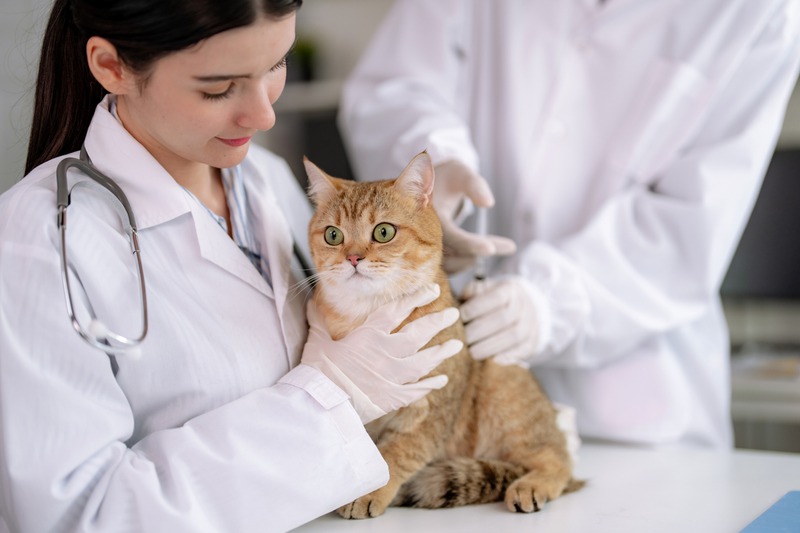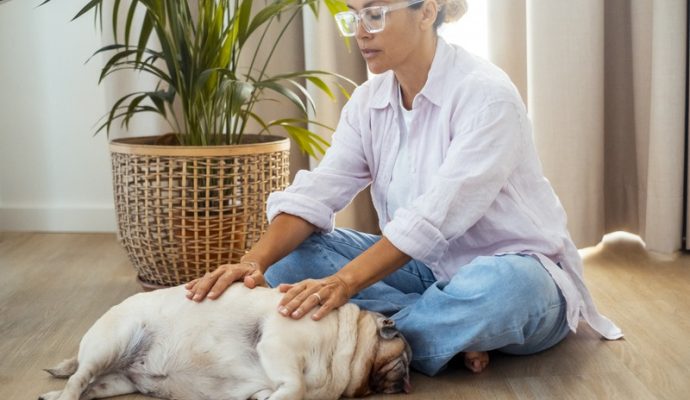Your pet is part of your family, and it can be stressful to think about them coming into contact with poisonous substances. Awareness and knowing what to ask your vet can make all the difference. Here’s a guide to help keep your furry friends safe and sound.
Common Poisonous Substances for Pets
Not everything that’s safe for humans is safe for pets. Here are a few common hazardous materials that pets may be exposed to:
-
Human medications
-
Household cleaners
-
Certain plants, like lilies and tulips
-
Human foods such as chocolate and onions
-
Pest control products like rodenticides and insecticides
Knowing these common dangers is a starting point, but for comprehensive protection, initiating a discussion with your vet is key.
Key Questions to Discuss with Your Vet
When you go see your vet, it’s good to have some questions ready. This will make sure you do not forget anything important. Your vet can give you lots of helpful information. Asking the right questions can also help you take better care of your pet. Here are some of the most important things you might want to ask:
-
What are the signs of poisoning I should look out for? This question is very useful because it helps you know when your pet might be in danger. The vet can tell you what signs show that your pet may have eaten something harmful.
-
How can I pet-proof my home effectively? Keeping your home safe for your pet is just like keeping it safe for a small child. Your vet can suggest ways to keep dangerous items away from your pet. This way, you can prevent accidents at home.
-
Are there any specific dangers for my pet’s breed or species? Some pets, because of their breed or kind, may face different risks. Your vet can tell you about these risks and how you can prevent them. This knowledge can save your pet from health problems that are common in certain breeds or types of animals.
Talking about these questions with your vet will help you learn how to watch out for and avoid dangers to your pet. You will be better prepared to keep your pet safe and healthy.
Immediate Steps in Case of Suspected Poisoning
If you suspect your pet has ingested something toxic, time is of the essence. Ask your vet about the following:
-
First aid measures you can perform at home
-
Whether it’s safe to induce vomiting and how to do it properly
-
Essential details to bring to the vet, like the substance ingested and the quantity
Your prompt action can make a significant difference while seeking professional help.
Toxicity Levels and Treatment
Varying substances have different levels of toxicity. Discuss with your vet:
-
The variety of toxic substances that can affect your pet
-
The range of treatments available depending on the toxin
This knowledge equips you to understand the urgency and type of care your pet may need.
Preventive Measures and Home Safety
Prevention is better than cure. Here are a few tips:
-
Keep all potential poisons locked away or out of reach
-
Regularly update your knowledge of pet safety
Continuous learning and home vigilance contribute to your pet’s well-being.
Resources and Emergency Contacts
It’s critical to have easy access to resources and emergency contacts. Ensure you ask your vet for:
-
A list of emergency numbers, including poison control centers
-
Online resources for further reading on pet poisons
Having these contacts saved in your phone or on your fridge door could save precious minutes in an emergency.
Geriatric Pets and Poison Risks
Click here for details on caring for older pets, as they may have a slower response to toxins and a different set of dietary restrictions. Their advanced age can also complicate treatment for poisoning, making prevention and early detection vital.
Creating a Poison-Free Environment
A safe environment is the best line of defense. Here are aspects to consider:
-
Identify and remove poisonous plants from your home and garden
-
Choose pet-friendly household products
Making these choices minimizes the risks your pet faces daily.
Training Your Pet for Safety
Training your pet to avoid dangerous items is also pivotal. You could:
-
Teach commands like “leave it” to prevent them from ingesting harmful items
-
Use positive reinforcements to encourage safe behaviors
This proactive approach complements the safety measures you’ve put in place at home. If you’re looking for a nearby veterinarian, consider services like those offered at a Citrus Heights pet hospital, providing comprehensive care and emergency services to ensure your pet’s health and safety.
Monitoring Your Growing Kitten or Puppy
Young pets are at a higher risk as they explore their environment with their mouths. It’s essential to:
-
Chaperone their playtime to avoid contact with toxins
-
Puppy or kitten-proof your home to prevent access to dangerous objects
These steps are fundamental as your pet grows and becomes more independent.
Starting Off on the Right Paw
Diligent care from the start can foster good habits in pets. A puppy or kitten vet can offer precise advice tailored to young pets, helping them avoid potential hazards as they grow.
To End
Your pet’s safety is paramount, and understanding the dangers of poisonous substances is a responsibility that pet owners must embrace. Through conversation with your vet and active steps toward creating a safe environment, you can help ensure that your pet lives a long, healthy, and happy life. Stay informed, stay prepared, and never hesitate to reach out for expert advice when it comes to the safety of your beloved companion.




